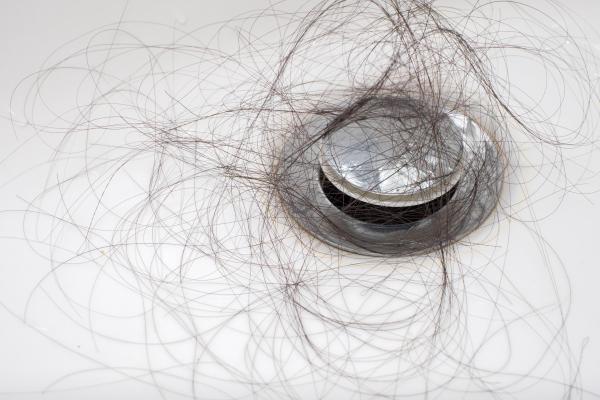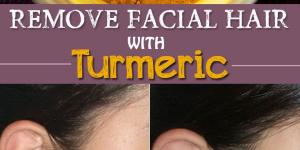How to Stop Hair Loss Related to Stress


Did you notice that in the last few months you have lost more hair than usual? More than 50% of the population suffers from hair loss at some point in their lives. The reasons are varied and include diet, health problems, medications and environmental factors. Stress can play a fundamental role in the weakening and loss of hair.
At oneHOWTO we want to delve deeper into why stress causes hair loss. Whether it is due to family, work or personal matters, stress and anxiety can negatively affect our well-being and health. We look at the causes and types of stress and hair loss. In doing so, we find out how to stop hair loss related to stress.
Causes of hair loss from stress
Hair loss from stress is much more frequent than it seems. Affected people often see how they lose a big amount of hair every time they comb their hair or shower, also to finding hair on the pillow, sofa or floor. Although it is difficult to estimate, stress hair loss is one of the main consultations in dermatology and pharmacy. It represents one of the main causes of diffuse alopecia.
Although it is not a serious condition and is usually temporary, stress hair loss can cause a lot of concern. But why does this condition occur? Episodes of stress and anxiety are the main factors that trigger this condition.
Types of stress falls
Since stress is one of the main causes of hair loss, we must differentiate the type of loss that this condition can promote.
- Psychological stress: we refer to anxiety, mental exhaustion or depression that can lead to hair loss from stress and that many people suffer in their day to day, due to the context of work, family, personal problems or sudden changes. Likewise, post-traumatic stress or bipolar disorder can also increase falling episodes. These conditions are usually underdiagnosed, so hair loss, in these cases, can be prolonged and intensify over time.
- Physical stress: physical stress is related to diseases such as lupus or tumor processes, as well as major surgeries or severe trauma.
Psychological stress or physical stress may be the reasons, but the main cause of the loss is cortisol. This hormone that has a direct effect on organs and tissues in the body and can help us fight both stress and infections. Due to anxiety or tension, cortisol levels will be higher and continuous, causing excess inflammation that alters the life cycle of the hair.
Symptoms of hair loss from stress
Now that you know what the condition of hair loss due to stress is, it is important to know how to recognize the signs that indicate that you are suffering from this type of hair loss and thus be able to go to the doctor to treat this hair health problem. The main symptoms are:
- Sudden hair loss.
- Being immersed in a stressful situation or a major trauma that is conditioning your health.
- See the pillow full of hair, tufts in the brush or the shower drain clogged.
In addition, stress is usually accompanied by the following symptoms: poor memory, headaches, lack of energy or concentration, tiredness, nervousness, tachycardia, stiff neck or jaw, sexual problems, diarrhea, etc.
Although these signs are easily recognizable, they can sometimes be more difficult to identify, depending on the relationship between hair loss and stress. In this sense, there are three patterns through which nervous alopecia manifests:
- Telogen effluvium: it is the most common and consists of an alteration of the hair growth cycle. When this alteration occurs, the person suddenly enters the telogen or fall phase, so the loss increases.
- Trichotillomania: it is the psychological alteration that occurs in those who suffer from compulsive disorders of stretching or pulling hair and that is related to stress, loneliness, anxiety or depression.
- Alopecia areata: it is the alteration of the immune system that attacks the follicles and prevents their growth, it is produced by organic stress.
You may be interested in reading this article on seasonal hair loss.

Is hair loss from stress permanent?
Stress hair loss is usually a temporary and reversible problem. Generally, it's necessary to eliminate the main focus that is causing hair loss to end this crisis, i.e. stress. The idea is to level anxiety in order to stabilize cortisol levels and recover the normal hair growth cycle.
Since not all people face stress or anxiety in the same way or the symptoms may vary, we recommend seeking the advice of a doctor in case you notice more hair loss than normal. A specialist will help to diagnose the problem, identify the specific causes that have triggered it and be best able to solve it quickly, adequately and effectively.
How to regain hair loss from stress
Besides specific treatments, there are certain measures that can help you reduce your stress and help recover your hair health. Some of these are less direct than others.
Meditation, mindfulness and breathing
Practicing conscious breathing or meditating can mitigate the stress you're feeling. You can become aware and try to park your worries, helping you with breathing techniques that will allow you to control your nerves. Here we teach you mindfulness exercises for anxiety .
Stimulate the scalp
Scalp stimulation can help you increase blood flow to the area, thereby stimulating hair follicles so that hair grows better and faster. Try massaging your scalp with hair oils to achieve this. In this article we explain how to hydrate the scalp.
Balance diet
As we have mentioned, food is also essential to take care of your hair health. Eating a healthy and balanced diet is essential to prevent hair loss. You'll need to make sure you're getting nutrients like vitamin D, zinc, and iron.
Daily activities that reduce stress
Doing activities that make you feel good, help you avoid problems or which reduce stress levels, will help you balance the levels of cortisol hormone.
Positive environment
Surrounding yourself with a positive environment will allow you to feel better and, consequently, reduce your level of anxiety. Dirty, messy, noisy and polluted environments directly affect our mental health and, consequently, can enhance our stress patterns. It is important to organize work and leisure spaces to keep calm.
Release tension
Learning to release tension is essential to recover the correct cortisol levels. To do this, you must recognize when your body is stressed. We recommend you carry out muscle tension and strain exercises to reduce tension and relax your body and mind.
Low intensity light treatment
Keratin is a key protein when it comes to hair health. We must promote its production to prevent hair from falling out in a stress situation. In this sense, there are low-intensity light treatments that, when penetrating the skin, stimulate the cells to increase protein production.
Platelet-rich plasma treatment
Platelet-rich plasma treatment, also called PRP, is used to stimulate hair growth. If the doctor deems it appropriate, they can administer a course of treatment. You will be required to take a blood sample which will be centrifuged to separate the platelets from the plasma. It will then be injected into the scalp to fuel new hair growth. The results are usually visible after a year of treatment.
If you want to read similar articles to How to Stop Hair Loss Related to Stress, we recommend you visit our Beauty & Personal Care category.





